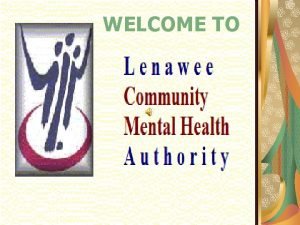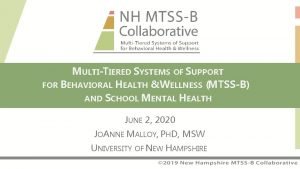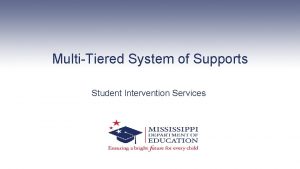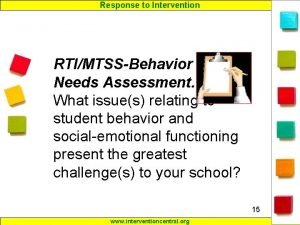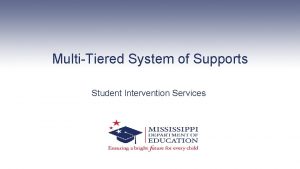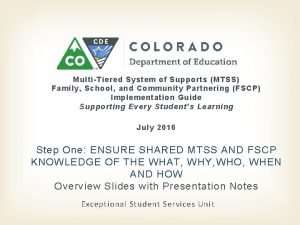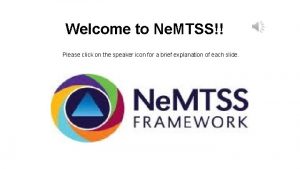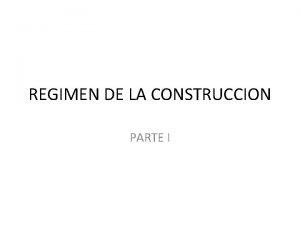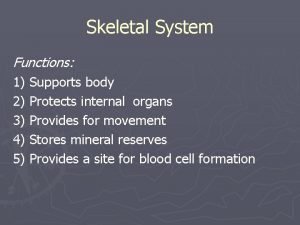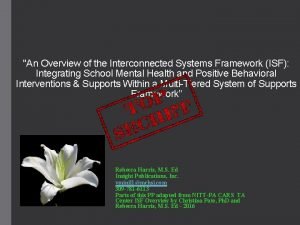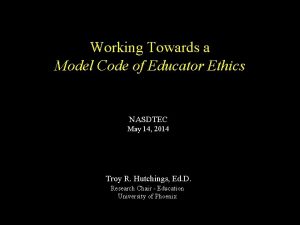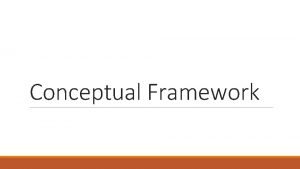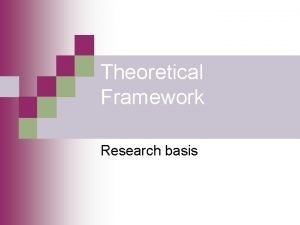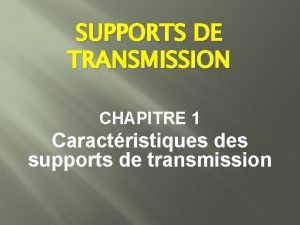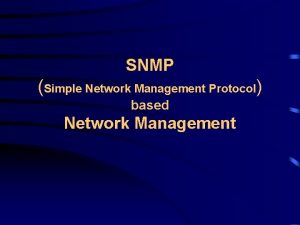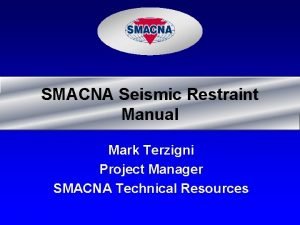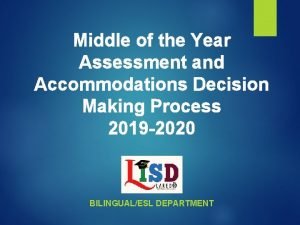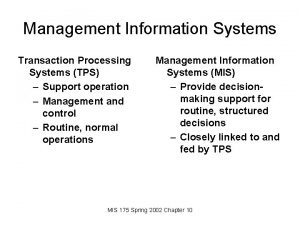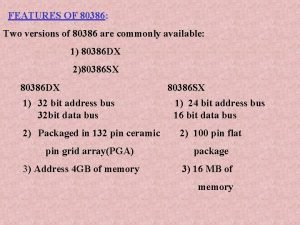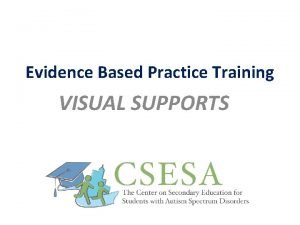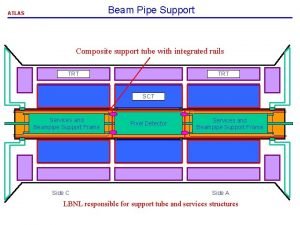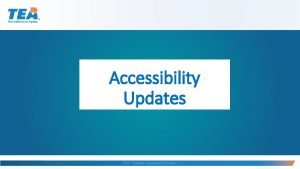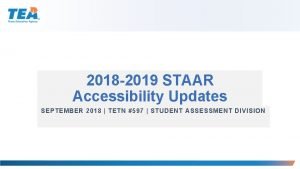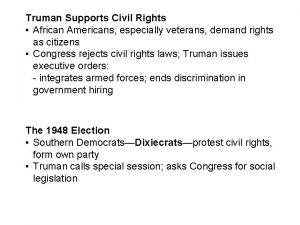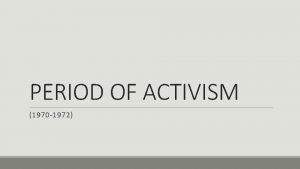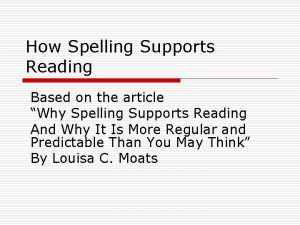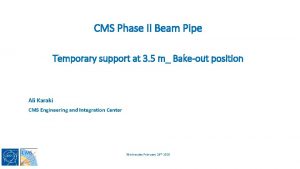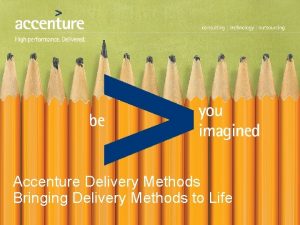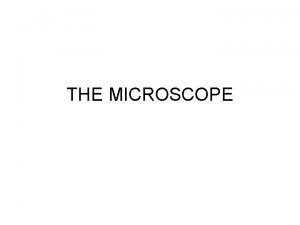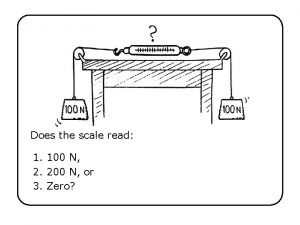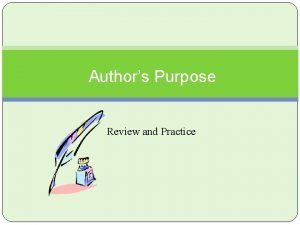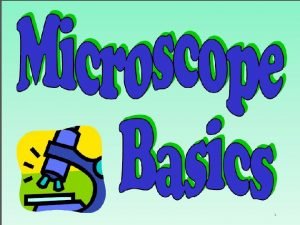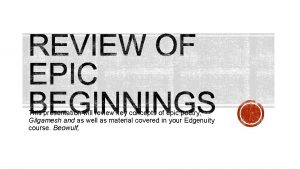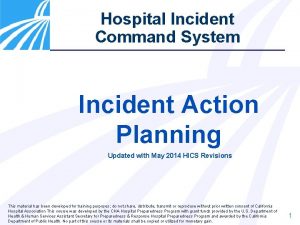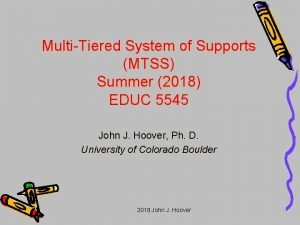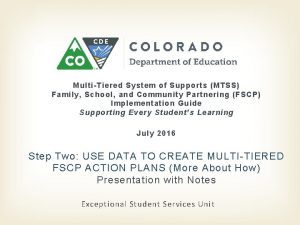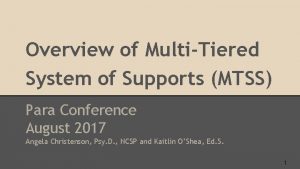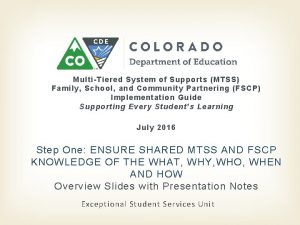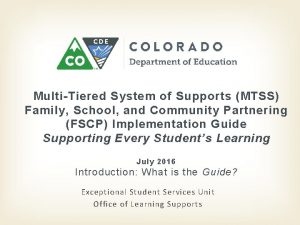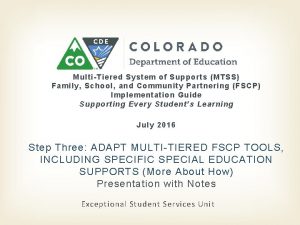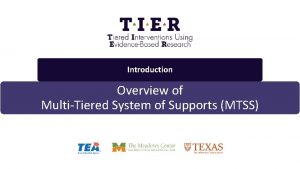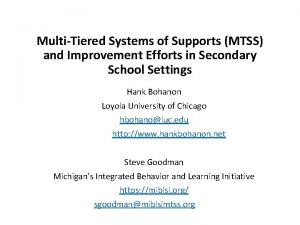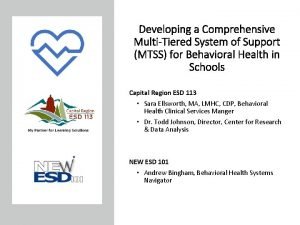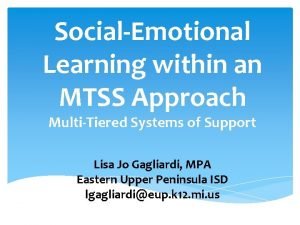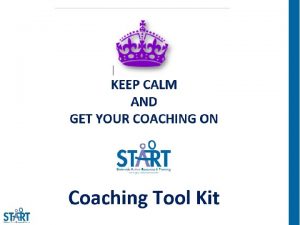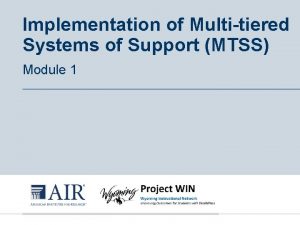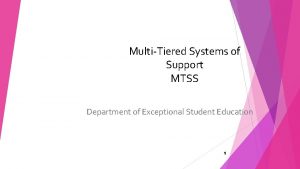LISDMDE MultiTiered System of Supports MTSS Framework Lenawee

























































- Slides: 57

LISD/MDE Multi-Tiered System of Supports (MTSS) Framework Lenawee ISD August 18 -19, 2014 1

Agenda • Introductions • MTSS Framework Overview & Self Assessment • Assessment & Data Analysis • MTSS and School Improvement • Implementation & Inquiry Process • MTSS Resources 2

2013 Allegan Bay/Arenac Berrien COP Clare/Gladwin Copper Country Eastern UP Genesee Gratiot/Isabella Jackson Kent Macomb Marquette/Alger Monroe Montcalm Muskegon Saginaw St. Clair St. Joseph Tuscola Wexford/Missaukee MAISA/MDE MTSS Participation 2014 Calhoun Charlevoix/Emmet Eaton Lenawee Shiawassee Traverse Bay Area Van Buren

Focus Should we do it? Stage Description Exploration/Ado Decision regarding commitment to ption adopting the program/practices and supporting successful implementation. MAISA/MDE MTSS Grant Initiative Installation Set up infrastructure so that successful implementation can take place and be supported. Establish team and data systems, conduct audit, develop plan. Initial Implementation Try out the practices, work out details, learn and improve before expanding to other contexts. Elaboration Expand the program/practices to other locations, individuals, times- adjust from learning in initial implementation. Continuous Improvement/Re generation Make it easier, more efficient. Embed within current practices. Work to do it right! Work to do it better! Mi. BLSi

• Discuss your understanding of Rt. I and MTSS. How are the terms currently being used by your organization? You local districts/schools?

Multi-Tiered System of Support Framework • MTSS is an integrated, multi-tiered system of instruction, assessment and intervention designed to meet the academic achievement and behavioral health needs of ALL STUDENTS. • MTSS is meant to be embedded into the school improvement process to provide a framework for meeting the needs of ALL STUDENTS. 6

School-Wide System of Supports for Student Success Intensive Intervention Individualized, functional assessment, highly specific 5% Universal Intervention Core Instruction Differentiation All students Preventive 15% Targeted Intervention Supplemental, some students, reduce risk 80% 7

New MTSS Graphic 8

MTSS Not Regular Education Not Special Education

Instruction & then Interventions • Scientifically research-based (peer reviewed & evidence based) • Has a high probability of producing change for large numbers of students • Is designed to be used in a standard manner across student populations • Targeted assistance based on benchmark and screening data • Administered by classroom teacher, specialized teacher, or external interventionist

Essential Framework Elements 1. Implement effective instruction for all children 2. Intervene Early 3. Provide multi-tiered model of instruction and intervention 4. Utilize a collaborative problem solving model 5. Assure Research based core curriculum 11

Essential Framework Elements 6. Implement research-based, valid interventions and instruction 7. Monitor progress to inform instruction 8. Use data to make instructional decisions 9. Use assessments for screening, diagnostics, and progress monitoring 10. Implement with fidelity 12

MTSS Cluster Areas 1. Instruction and Interventions (Tiers I, II, & III) 2. Problem Solving 3. Implementation of Evidence-based Practices 4. Data and Assessment 5. Stakeholder Engagement 13

MTSS Cluster Areas Instruction and Intervention 1. Implement effective instruction for all children 2. Intervene Early 3. Provide multi-tiered model of instruction and intervention 14

MTSS Cluster Areas Problem Solving 4. Utilize a collaborative problem solving model 15

16

MTSS Cluster Areas Implementation of Evidence-based Practices 5. Assure research based core curriculum (aligned with Michigan’s state standards) 6. Implement evidence-based, valid interventions and instruction 10. Implement with fidelity 17

MTSS Cluster Areas Data and Assessment 7. Monitor progress to inform instruction 8. Use data to make instructional decisions 9. Use assessments for universal screening, diagnostics, and progress monitoring 18

MTSS Cluster Areas Stakeholder Engagement 11. Engage parents and community (and students!) 19

• Individually list the roles/functions of each area on the sheet (ISD, District, Building).

How Ready Is Your District?

Score Sheet Activity 22

Score Sheet Activity • Using your score sheet, individually rate where you think your distric is at with implementation of each essential element of MTSS with 1 = Not At All and 5 = Fully • For the cluster areas with 3 elements added together, take the total score for all 3 and divide it by 3. Write this number in the box for later use. 23

Score Sheet Activity • Using your score sheet, as a Team calculate the average score for your district’s implementation of each essential element of MTSS. Record results on the Team Convergence/Divergence Chart 24

How well is your system supporting these areas? 1. Report Out by Team

Score Sheet Gap Analysis Activity 26

Team Gap Analysis Activity • Working with your team, use the “Team Convergence/Divergence” sheet to analyze the varying perspectives you hold on your district’s implementation of MTSS. • For each cluster area listed, take the highest score from your team and subtract the lowest score from your team. A higher number indicates a larger gap (divergence), while a lower number indicates more agreement (convergence). • Use the questions below the table to guide your discussion around your team’s perception data. 27

Current Initiatives Working with your team: 1. List all current initiatives (instructional, curricular, behavioral) that your district is doing 2. Categorize them within the framework cluster areas

Data & Assessment

Assessment The difference between a formative and summative assessment has also been described as the difference between a physical and an autopsy 30

Three Assessment Types • Universal Screening • Progress Monitoring • Diagnostic 31

Universal Screening • Dip stick – 3 times/year – ALL STUDENTS • System view of student progress • Ability to drill down from the district level to the student level • Data management and analysis is key! 32

Progress Monitoring • Used to determine if level of instruction is working • At risk students monitored every two weeks - most intensive needs students monitored weekly • Short, probe assessments of reading fluency/mathematics - most common 33

Diagnostic • What instruction does this student need? • What is the student able to do – their present level of performance? • Administer assessment of concepts to determine the proper instructional format (whole class vs. small group) and instructional objectives 34

How well is your system supporting assessment and databased decision making? Use the Guiding Principles of MTSS Practice Profile and a highlighter to identify where you are at in supporting these areas.

• How are you currently using or supporting the use of assessments to make instructional decisions? Use the Guiding Principles of MTSS Practice Profile to guide your discussion.

MTSS & School Improvement

School Improvement is LAW • Schools are required to submit a 3 -5 year plan annually • Districts are required to submit a 3 -5 year plan supporting their schools annually • ISDs are required to submit a 3 -5 year plan supporting their districts annually • Plans must include goals, objectives, strategies, and activities 38

39

School Improvement Process through an MTSS Lens Goals Objectives Strategies Activities Resources Goal: Broad goal statement (academic or organizational) Objective: S. M. A. R. T. Strategy: Adult actions – Teacher will… Activity: Specific action – road map

Sample SIP Items Goal: All students will be proficient in reading. Objective: 85% of all students will demonstrate a proficiency in all reading standards in ELA by 06/30/2022 as measured by state level assessment, where an annual 4% increase will occur from the baseline of 46% in 2011. Strategy: Teachers will use _____, an evidence-based strategy in the classroom. Activity: Teachers attend prof. learning in _______.

School Improvement Process through an MTSS Lens Goals Objectives Strategies Activities Resources With your team, write a goal, objective, strategy, and activities through an MTSS lens.

• How is MTSS currently embedded within your District/School Improvement Process? How could intentionally embedding this work enhance a SIP/DIP?

Implementation

A poorly implemented program can lead to failure as easily as a poorly designed one. - Mihalic, Irwin, Fagan, Ballard & Elliott, 2004

What We Have from Statewide Implementation Nationally • Full implementation with integrity takes 3 -5 years. • Integration of academic and behavior problem-solving is critical • Level of implementation is directly related to student outcomes • Level of adult readiness directly correlates to level of implementation • Implementation is a district-wide systems change process • Success of Tiers 2 and 3 determined by effectiveness of Tier 1 • This HAS TO BE an all education initiative • On-going evaluation is critical to implementation effectiveness

Focus Should we do it? Stage Description Exploration/Ado Decision regarding commitment to ption adopting the program/practices and supporting successful implementation. Installation Set up infrastructure so that successful implementation can take place and be supported. Establish team and data systems, conduct audit, develop plan. Initial Implementation Try out the practices, work out details, learn and improve before expanding to other contexts. Elaboration Expand the program/practices to other locations, individuals, times- adjust from learning in initial implementation. Continuous Improvement/Re generation Make it easier, more efficient. Embed within current practices. Work to do it right! Work to do it better!

Successful Student/Family Outcomes What: Program/Initiative (set of practices) Dr ive mp ete nc y Co Leadership © Fixsen & Blase, 2008 Capacity to provide direction/vision of process s Core Implementation Components er riv D on ati niz ga How: Institutional capacity to support staff in implementing practices with fidelity Or Staff capacity to support and implement with fidelity the selected practices rs Why:

Successful Student/Family Outcomes Program/Initiative (set of practices) Performance Assessment (Fidelity) Dr ive nc y ete Co mp s er riv Integrated & Compensatory Facilitative Administration n. D Selection o ati niz Training Systems Intervention ga Or rs Coaching Leadership © Fixsen & Blase, 2008 Adaptive Technical Decision Support Data System

District Capacity and Planning


Tools & Resources


Tools for Guidance • MDE Guidance Document – MDE Rt. I-MTSS Vision, Definition and Essential Elements – Rt. I-MTSS Inquiry Process – Rt. I-MTSS Essential Elements and Explicit Practices Chart (Classroom, Building, District, ISD, State) http: //teachingforlearning. org/local/documents/rti 13. pdf - Revisions coming soon! • School Improvement Framework Document http: //www. michigan. gov/documents/SIF_4 -0105_130701_7. pdf - Revisions approved! 54

Research-Based Website Resources Find What Works This feature of the What Works Clearing House helps find interventions that address your school or district's academic needs and summarizes their evidence of effectiveness. Interventions can be searched by domain (academic achievement, dropout prevention, language development, mathematics/science, personal/social development, reading/writing, grade (PK-12), population (English language learners, special education) http: //ies. ed. gov/ncee/wwc/ 55

• • • Resources & References Mi. BLSi Rt. I Action Network Center on Instruction National Center on Response to Intervention George Batsche – University of South Florida What Works Clearinghouse Institute of Education Sciences (IES) Mc. REL Florida, Colorado, Kansas National Implementation Research Network (NIRN)

Contact Information MTSS Framework Technical Assistance brian. jones@lisd. us Data and Assessment Bill Brown Stan Masters 265 -1636 265 -1606 bill. brown@lisd. us stan. masters@lisd. us School Improvement Brian Jones 265 -6988
 Lenawee community mental health authority
Lenawee community mental health authority Lcmha
Lcmha Lenawee county community mental health
Lenawee county community mental health Accountant job at lenawee community mental health
Accountant job at lenawee community mental health Mtss and udl
Mtss and udl Mtss indiana
Mtss indiana Mtss-b
Mtss-b Mde mtss documentation packet
Mde mtss documentation packet Mtss needs assessment
Mtss needs assessment Mtss documentation packet
Mtss documentation packet Benefits of mtss
Benefits of mtss Mtss
Mtss Mtss nebraska
Mtss nebraska Trazabilidad mtss
Trazabilidad mtss Mtss infographic
Mtss infographic Social emotional learning standards indiana
Social emotional learning standards indiana Which system supports the body
Which system supports the body Pros and cons of pbis
Pros and cons of pbis Dispositional framework vs regulatory framework
Dispositional framework vs regulatory framework Example of theoretical framework
Example of theoretical framework Theoretical framework example
Theoretical framework example Theoretical framework
Theoretical framework Dispositional framework vs regulatory framework
Dispositional framework vs regulatory framework Theoretical framework example
Theoretical framework example Supports intensity scale rating key
Supports intensity scale rating key Les supports de transmission
Les supports de transmission This excerpt supports the idea that rainsford has
This excerpt supports the idea that rainsford has Snmp model in computer networks
Snmp model in computer networks Smacna hangers and supports
Smacna hangers and supports Oral administration staar 2020
Oral administration staar 2020 Tps in ict
Tps in ict Staar content and language supports
Staar content and language supports Explain operating modes of 80386
Explain operating modes of 80386 Visual supports evidence-based practice
Visual supports evidence-based practice Structured guidance and supports
Structured guidance and supports Composite pipe supports
Composite pipe supports Staar content and language supports
Staar content and language supports What is content and language supports
What is content and language supports Truman supports civil rights
Truman supports civil rights Supported opinion paragraph format
Supported opinion paragraph format Postural supports definition
Postural supports definition Period of activism literature in the philippines
Period of activism literature in the philippines How spelling supports reading
How spelling supports reading The pipe assembly supports the vertical loads shown
The pipe assembly supports the vertical loads shown Raceway supports
Raceway supports Temporary pipe supports
Temporary pipe supports Accenturedeliverysuite.accenture.com
Accenturedeliverysuite.accenture.com A person who supports artists especially financially
A person who supports artists especially financially Supports the body tube *
Supports the body tube * Metacognition and growth mindset supports grit
Metacognition and growth mindset supports grit What is the result of following vik null ram
What is the result of following vik null ram Pinecrest supports and services center
Pinecrest supports and services center Arnold strongman and suzie small
Arnold strongman and suzie small Which phrase best supports the author’s purpose?
Which phrase best supports the author’s purpose? Amerigroup fcs
Amerigroup fcs Monocular compound microscope parts and functions
Monocular compound microscope parts and functions Christianity vs paganism chart
Christianity vs paganism chart Incident action planning guide
Incident action planning guide


